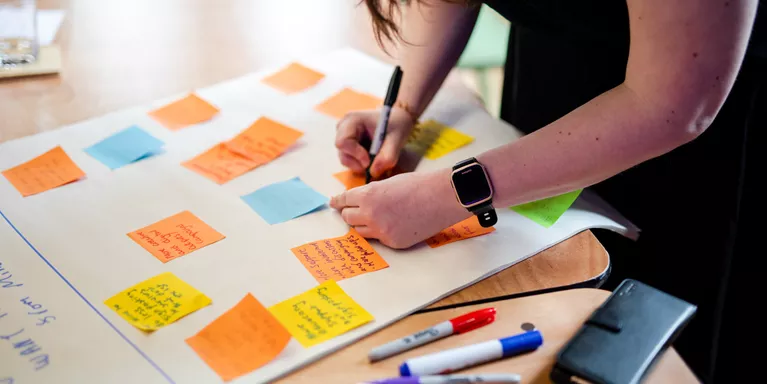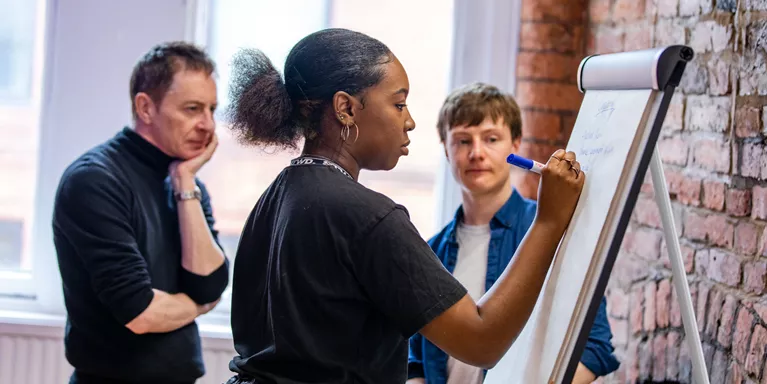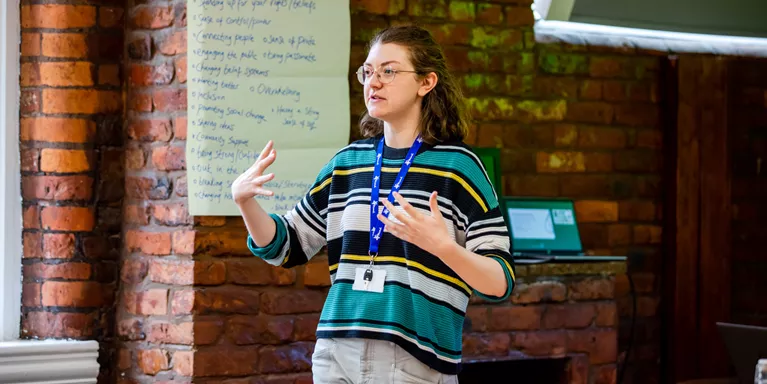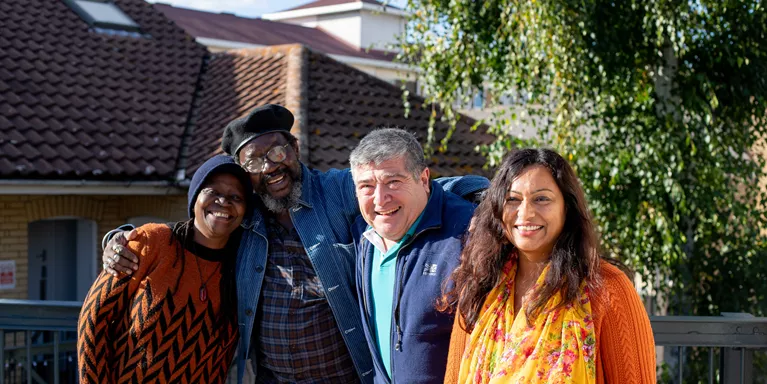Keeping your peer support going
On this page, we talk about the 4 key challenges your peer support group may face.
Why can it be hard to keep peer support going?
In 2020, we asked local groups, charities and projects about the biggest challenges they faced in keeping their peer support going. We wanted to know what kept some groups going while others were struggling. What were the challenges, and how did they overcome them?
We brought together a group of people from national and local mental health charities, peer support groups and people with lived experience of mental health problems to find out.
Some peer groups have a short lifespan. They start because of a particular need, they fulfil that need, then they stop, or change their focus. For others, peer support is a lifeline. A regular touchstone to help us maintain our wellbeing and look after our mental health when times are tough. They can also be a great mirror for us to acknowledge that we are doing well against all the odds.
We tend to start thinking about whether a peer support group is sustainable, only when it's under threat. Perhaps we have developed an idea, we have the right people involved, and we're delivering a valuable resource. But energy is waning, a lot of work is falling on the shoulders of one person, and people are dropping out.
How do we maintain a peer group in a way that allows us all to benefit from mutual support, while keeping an eye on the practicalities? Maybe your peer group has had a high profile, with a lot of people benefitting, and then, the plug gets pulled. The funding stops, the venue is no longer available, people drift away, and you can't seem to replace them.
This information might help you think about how to sustain your group before it gets to crisis point. It doesn't matter whether you're already involved in a peer group, you're thinking of setting one up, or your group is coming towards a potential end. It's always good to think about where your group is going.
The 4 key challenges with sustaining peer support
From our conversations, we found 4 key areas of issues challenging the sustainability of groups.
One of the biggest challenges people told us about was the lack of resources, including funding. We know that peer support can be a low-cost option, but most groups need some funding to survive in the longer term.
This section gives groups some ideas about finding ways to generate income or find free and low-cost resources in the community.
We found that connecting people, groups and services in the local community can play a big role in keeping a group going. In this section, we give suggestions for sustaining your group through:
- building relationships within your local community
- sharing resources
- learning.
A lot of the time, some groups rely on a single leader to take responsibility for the group. This can be too much for one or even two people to sustain for long periods.
In this section, we give ideas for ways of sharing leadership and encouraging shared or collective ownership amongst members.
People told us about how groups have tailed off or ended because people stopped attending. This could be due to something problematic in the group or because people began to feel it was no longer for them.
In this section, we share ideas about dealing with challenges as a group and making sure everyone benefits from them. We also recognise that some groups have a limited lifespan, and it might be a good thing to know when to end.


Networking and connections
Connecting with local and wider communities to help to keep your group going.


Membership
In this section, we look at sustainability at the level of the group: exploring your group membership, group relationships and the power of inclusion.
Acknowledgements
A big thank you to our funders and to all those who have contributed to the creation of this resource.
The Side by Side sustainability guide has been led by Mind and co-produced with National and Local mental health charities, alongside people with lived experience of mental health difficulty.
Contributors
- Hanan Kasmi (Independent)
- Jeniz White (Independent)
- Lucy Armitage (GetUp SetUp/Independent)
- Alison Faulkner (NSUN/Independent)
- Rita Long (GetUp SetUp/Independent)
- Graeme Nisbet (GetUP SetUP/Independent)
- Laura Wood (Independent)
- Fran Flint (Coventry & Warwickshire Mind)
- Tarek Robertson (Aberystwyth Mind)
- Jess Worner (Independent)
Supported by Mind staff
- Liam Pywell (lead)
- Duncan Marshall
- Jane Salazar
- Caleb Cunniffe











